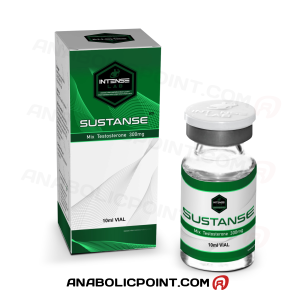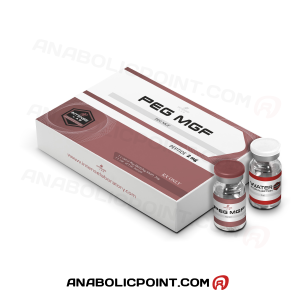Your basket is currently empty!
Exploring Nutraceuticals Marketed as Steroid Alternatives: Benefits, Risks, and Insights
The fitness and wellness industries have seen a surge in interest surrounding nutraceuticals marketed as natural alternatives to anabolic steroids. These products are often promoted as safer, legal, and less invasive options for achieving muscle growth, improved performance, and enhanced recovery without the potential dangers of synthetic steroids. Nutraceuticals, derived from food sources with purported health benefits, have carved out a niche by appealing to those seeking physical enhancement while minimizing health risks.
In this article, we delve into the most common nutraceuticals marketed as steroid alternatives, examine their mechanisms, and address their effectiveness and safety. For those curious about optimizing their fitness journey, understanding these products is essential.
Understanding Nutraceuticals as Steroid Alternatives
What Are Nutraceuticals?
Nutraceuticals are natural or semi-synthetic compounds derived from foods, plants, or other natural sources. These products aim to provide health benefits beyond basic nutrition, often targeting specific physiological functions such as muscle growth, energy production, or recovery enhancement.
Why Are They Marketed as Steroid Alternatives?
Anabolic steroids, while highly effective at enhancing muscle mass and performance, come with significant risks, including hormonal imbalances, liver damage, cardiovascular issues, and psychological side effects. Nutraceuticals marketed as steroid alternatives aim to provide similar benefits, leveraging natural ingredients that theoretically pose fewer health risks. They are legal, widely accessible, and do not require prescriptions, making them appealing to a broader audience.
Common Nutraceuticals Marketed as Steroid Alternatives
- Creatine Monohydrate
One of the most researched supplements, creatine supports increased energy production by boosting ATP levels. It promotes muscle strength, size, and recovery, making it a staple in muscle-building regimens. - Branched-Chain Amino Acids (BCAAs)
BCAAs, including leucine, isoleucine, and valine, stimulate muscle protein synthesis and reduce muscle breakdown during intense workouts. They are often used to support lean muscle growth. - Tribulus Terrestris
Marketed for its potential to naturally boost testosterone levels, this herbal extract is believed to enhance strength, libido, and muscle development. However, scientific evidence remains mixed. - Ashwagandha
This adaptogen is widely used to reduce stress and cortisol levels, indirectly supporting muscle recovery and growth. Some studies suggest it may enhance physical performance and testosterone production. - Ecdysteroids (e.g., Ecdysterone)
Plant-derived compounds touted as natural anabolic agents. They mimic the effects of steroids by enhancing protein synthesis without hormonal side effects. - Fenugreek Extract
Known for its potential to increase free testosterone levels, fenugreek is often included in testosterone-boosting formulas designed to support muscle growth and strength. - D-Aspartic Acid (DAA)
An amino acid regulator that may influence hormone production, including testosterone. It is marketed for its ability to enhance strength and muscle-building potential. - Zinc and Magnesium Aspartate (ZMA)
A combination of essential minerals, ZMA is believed to support testosterone production, recovery, and sleep quality, contributing to overall performance enhancement. - Beta-Alanine
By buffering lactic acid, beta-alanine improves endurance and reduces muscle fatigue, enabling longer, more intense training sessions. - Laxogenin
A plant-based steroidal sapogenin often promoted as a non-hormonal anabolic compound. It claims to enhance protein synthesis and recovery while avoiding side effects linked to synthetic steroids.
Mechanisms of Action: How These Nutraceuticals Work
Hormonal Modulation
Some nutraceuticals, such as Tribulus Terrestris and D-Aspartic Acid, aim to naturally elevate testosterone levels, promoting muscle growth and strength gains. Unlike anabolic steroids, which directly introduce synthetic hormones, these products work by stimulating the body’s natural hormone production.
Protein Synthesis and Recovery
Compounds like ecdysteroids, creatine, and BCAAs focus on enhancing muscle protein synthesis and reducing muscle breakdown. By supporting recovery and growth, they contribute to lean muscle development.
Stress and Cortisol Management
Adaptogens like Ashwagandha help reduce cortisol levels, a hormone linked to muscle breakdown when chronically elevated. By managing stress, they create a more favorable environment for muscle repair and growth.
Energy and Endurance
Nutraceuticals such as creatine and beta-alanine enhance cellular energy production and delay fatigue, enabling more effective workouts and better results over time.
Benefits of Nutraceuticals Over Steroids
- Safety Profile: Nutraceuticals are generally considered safer, with fewer side effects than anabolic steroids. They do not disrupt the endocrine system or pose risks like liver toxicity and cardiovascular strain.
- Legal and Accessible: Unlike anabolic steroids, which are often illegal without a prescription, nutraceuticals are widely available and comply with regulatory standards in most countries.
- Non-Invasive: These compounds do not require injections or intensive medical supervision, making them user-friendly.
- Sustainability: By supporting natural processes rather than introducing synthetic hormones, nutraceuticals may provide more sustainable, long-term results.
Risks and Considerations
While nutraceuticals are marketed as safer alternatives, they are not entirely risk-free. Some potential concerns include:
- Lack of Regulation: The dietary supplement industry is less tightly regulated than pharmaceuticals, leading to variability in product quality and ingredient transparency.
- Overhyped Claims: Many nutraceuticals lack robust scientific backing, with some effects based on anecdotal evidence rather than clinical studies.
- Potential Side Effects: High doses or prolonged use of certain nutraceuticals, such as D-Aspartic Acid, may have unintended effects on hormone levels or general health.
- Interactions: Combining multiple supplements or using them alongside medications may lead to adverse interactions.
Exploring Effectiveness: What Does Science Say?
The effectiveness of nutraceuticals marketed as steroid alternatives varies widely. While creatine and beta-alanine have substantial scientific support, other products, like Tribulus Terrestris and D-Aspartic Acid, have shown inconsistent results. For consumers, this underscores the importance of researching individual ingredients and choosing products with verified efficacy.
Psychological and Ethical Dimensions
The desire for enhanced performance raises questions about the psychological impact of using supplements marketed as steroid alternatives. While they may not carry the stigma of anabolic steroids, the pressure to achieve quick results can lead to misuse or dependence on these products. Ethically, their use in competitive sports also warrants scrutiny, particularly when products like ecdysteroids are being evaluated for inclusion on banned substance lists.
Taking a Balanced Approach
For individuals considering nutraceuticals as steroid alternatives, a balanced approach is essential. Combining these supplements with a healthy lifestyle, including proper nutrition, strength training, and adequate rest, is key to maximizing results. Consulting healthcare or fitness professionals can also help tailor supplement use to individual needs and goals.
FAQs About Nutraceuticals Marketed as Steroid Alternatives
- What are nutraceuticals marketed as steroid alternatives?
They are natural supplements designed to mimic the muscle-building and performance-enhancing effects of anabolic steroids without synthetic hormones. - Are these nutraceuticals safe?
Most are considered safe when used as directed, but individual responses vary, and some may cause side effects or interact with medications. - Do these products work as well as steroids?
While nutraceuticals can support muscle growth and performance, their effects are typically milder and slower than anabolic steroids. - Which nutraceuticals are the most effective?
Creatine, beta-alanine, and ecdysteroids have strong evidence supporting their effectiveness. - Can nutraceuticals boost testosterone naturally?
Some, like Tribulus Terrestris and D-Aspartic Acid, claim to increase testosterone, but results are inconsistent across studies. - Are these supplements legal?
Yes, they are generally legal and available without a prescription, although regulations may vary by country. - What are the side effects of these products?
Side effects can include digestive upset, hormonal fluctuations, or interactions with other supplements or medications. - Can women use these nutraceuticals?
Many are safe for women, but products targeting testosterone should be used cautiously to avoid unwanted hormonal effects. - Are there natural food sources of these compounds?
Yes, many compounds, like BCAAs and creatine, are naturally found in foods such as meat, fish, and eggs. - Do I need a prescription for these supplements?
No, nutraceuticals marketed as steroid alternatives are available over the counter or online.
Building Strength Naturally: A Smarter Way Forward
The growing interest in nutraceuticals marketed as steroid alternatives highlights a shift toward safer, more sustainable approaches to performance enhancement. While these products hold promise, their benefits are best realized when integrated with a comprehensive fitness plan that prioritizes health and balance. With the right knowledge and guidance, nutraceuticals can support impressive results without compromising well-being.












